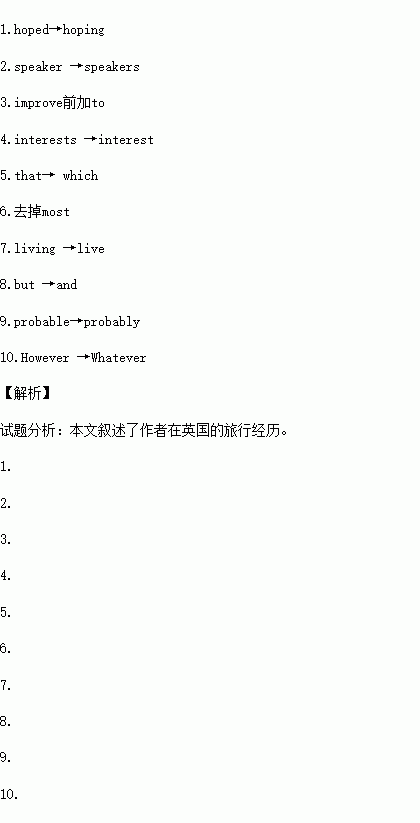��Ŀ����
���ĸĴ�
�ٶ�Ӣ�������ʦҪ��ͬ��֮�佻�������ģ���������ͬ��д���������ġ����й���10�����Դ���ÿ���������������ÿ��������漰һ�����ʵ����ӡ�ɾ�����ġ�
���ӣ���ȱ�ʴ���һ��©�ַ��ţ� ��������������д���üӵĴʡ�
��������������д���üӵĴʡ�
ɾ�����Ѷ���Ĵ���б�ߣ� ��������
��������
�ģ��ڴ��Ĵ��»�һ���ߣ����ڸô�����д���ĺ�Ĵʡ�
ע�⣺1.ÿ���������ľ�����һ�ʣ�
ֻ������10�������ţ��ӵ�11���𣩲��Ʒ֡�
My parents have decided to take me to Britain for a visit. I am excited, hoped to make good use of this opportunity. Firstly, I will talk to native speaker as much as I can improve my English. Secondly, there are many attractions that interests me a lot, among which is Big Ben, Besides, football, that is popular in England, is my most favorite sport. I have been dreaming of watching a living football match there but now the dream will come true. My friend Alice lives in London. I will probable meet her. However I do, I am sure I will have a good time.

